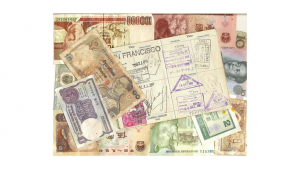If you are a business executive who loves to know or learn facts that you file away for future information, then this article may appeal to you. It contains interesting cultural particulars that I have learned while living, working and traveling outside of the United States.
In East Asian board rooms over new business discussions, executives will arrange the business cards of the participants in the order that they are seated around the table so that they can be sure to learn their names and titles and connect names with faces.
Germans will greet and shake hands with each person in the room. It is not polite to shake the hands of a few and wave casually to the others either when arriving or departing. You would be slighting those whom you don’t acknowledge with a handshake and a greeting.
Gentlemen, it is not uncommon in the Middle East for your local male colleague or client to clasp your hand while walking. This means that they like and trust you. Be forewarned, if you think that your hand may become clammy, as a result. They would never do this to a woman. In fact, I have seen police in middle Eastern countries separate the clasped hands of men and women Westerners.
You may meet locals, who may ask you questions that we would consider personal and intrusive in Western Europe and Canada and the USA. Examples of this would be: Are you married? How many children do you have? Why don’t you have children? What religion are you? How old are you? How much money do you make? Why isn’t your husband traveling with you? It is good to be prepared to diplomatically extricate yourself from
It is not only important to know how and when to give and receive gifts in business, but how to wrap them. In many cultures, how the gift is wrapped and presented, is as important as the gift itself. Consider the meaning of colors of wrapping paper to avoid giving offense. Gifts may be refused several times before they are accepted.
Don’t be offended if your gift is not opened in front of you. In East Asia and other parts of Asia, the gifts are opened privately.
Table manners and what is acceptable varies considerably, depending on the region. For example, eating loudly and belching may be acceptable in parts of the Middle East, but not in the UK, for example.
In South Africa, when they say, “I will see you just now,” it means they will see you later.
In the UK, a retirement scheme means pension plan in America. To table a discussion in America means to postpone it. In the UK, it means to put the topic out for discussion at present.
If you intend to drive in a foreign country, be sure to thoroughly know the local laws, what to do in case of an accident. If you are travelling with young children, learn what child restraint laws they have, if any.
When Germans whistle at a soccer match, they are jeering.
Beckoning someone with a curling index finger in Southeast Asia and Australia is rude.
Ladies, dressing in conservative clothes, with minimalist jewelry and wearing neutral colors is recommended in East Asia and the Middle East. What is considered acceptable, professional business attire in the US, may not be de rigueur in the United Arab Emirates, Kuwait, Saudi Arabia, where knees, shoulders and arms are almost always covered, and necklines of blouses and tops, at least touch the collarbone.

